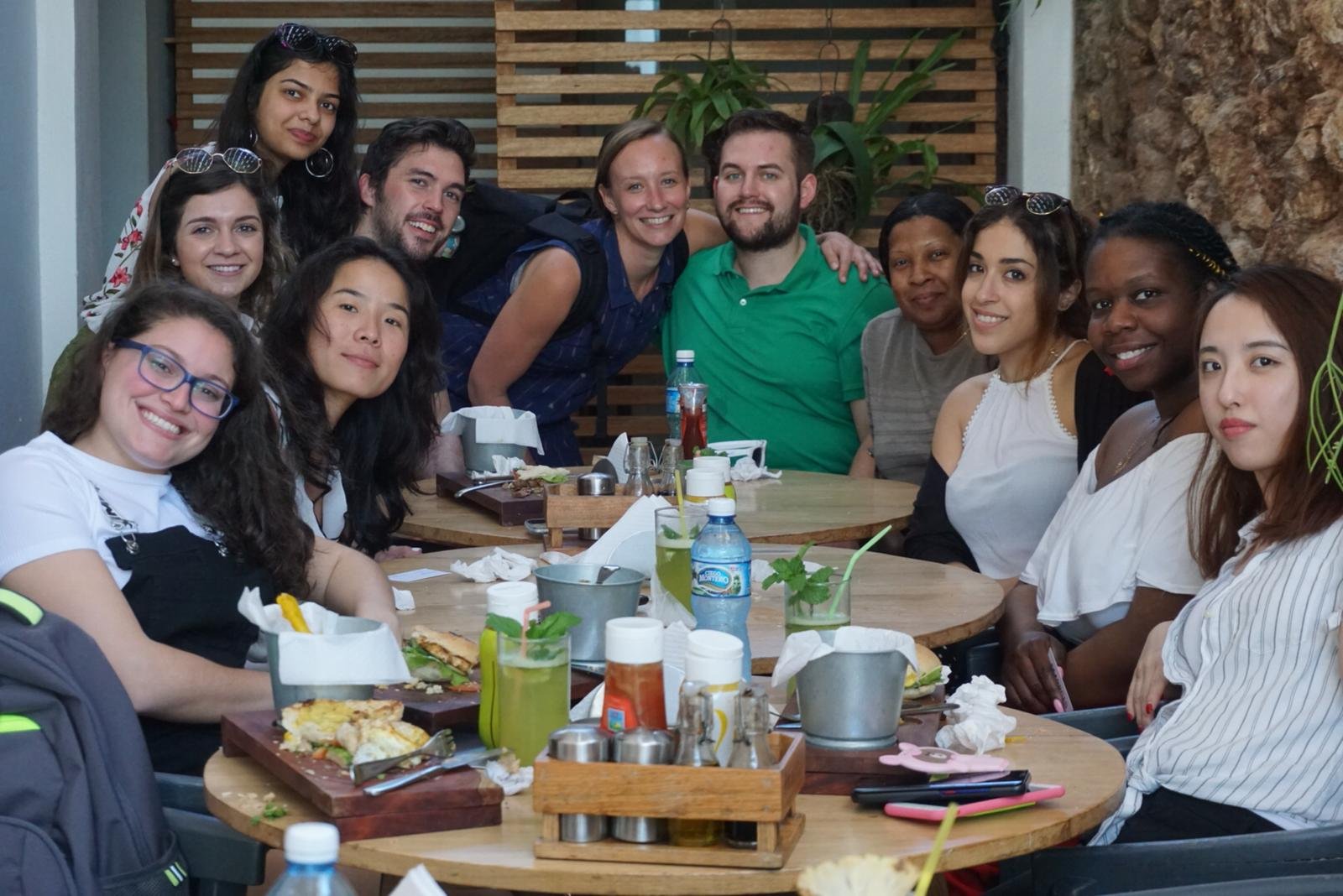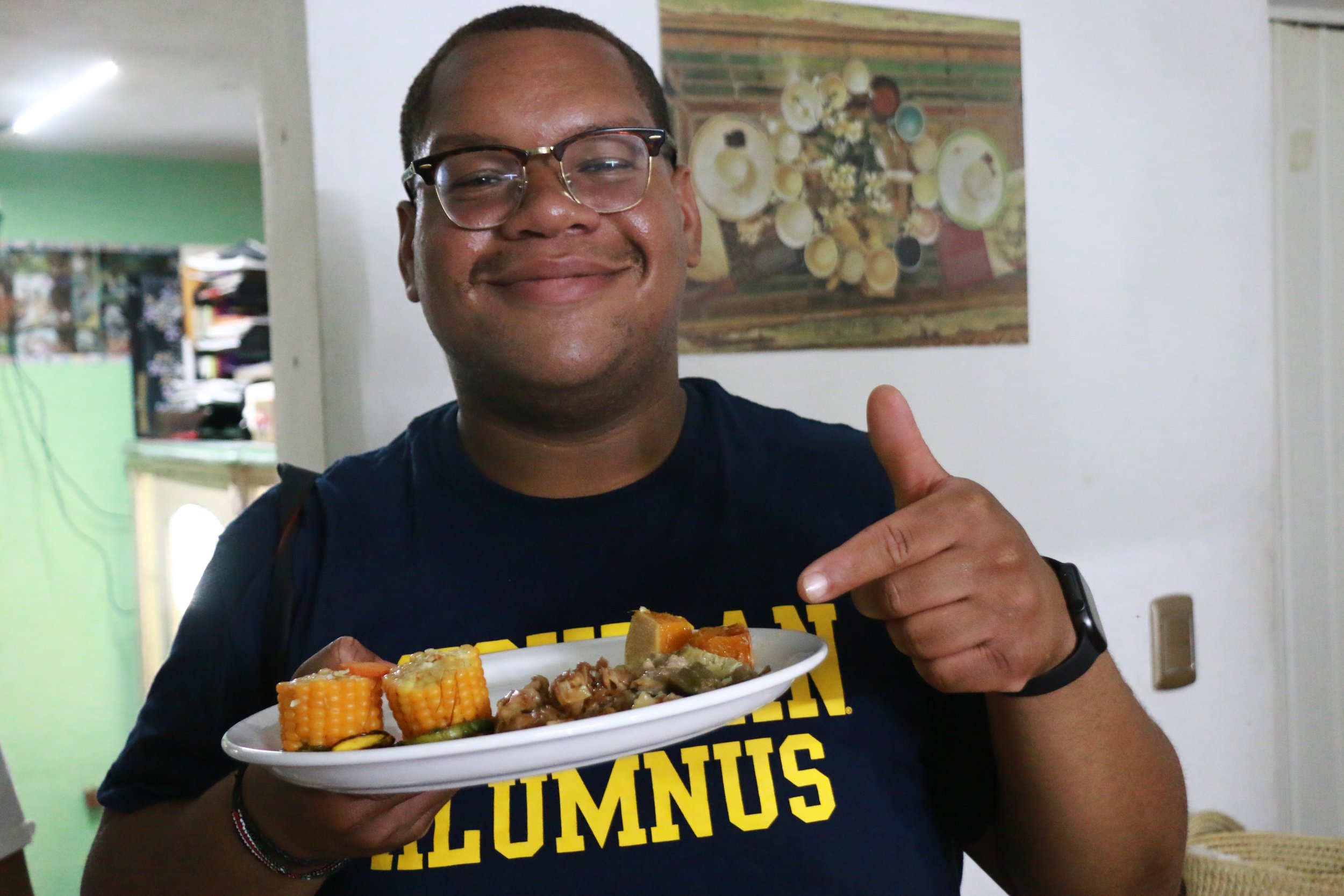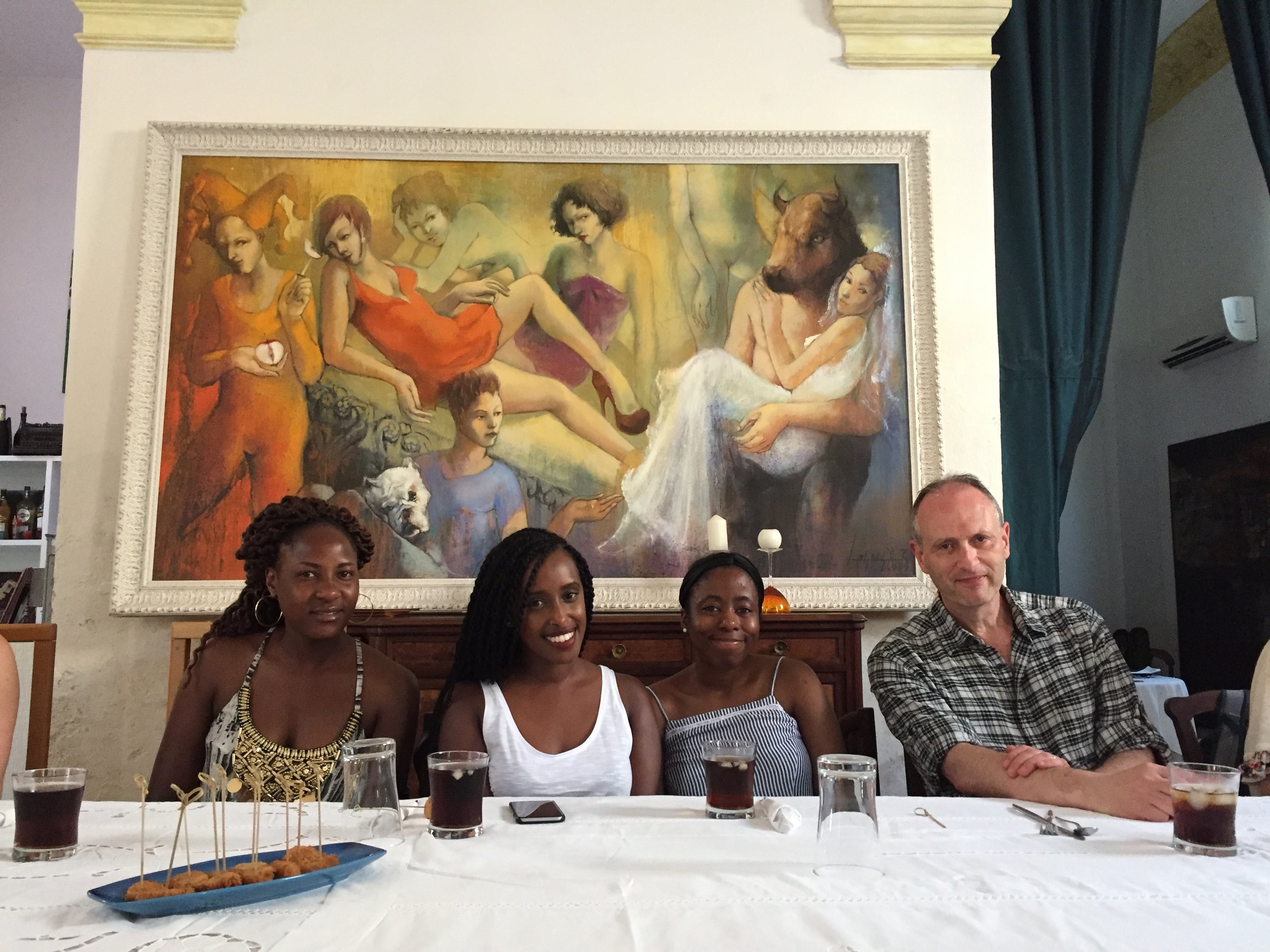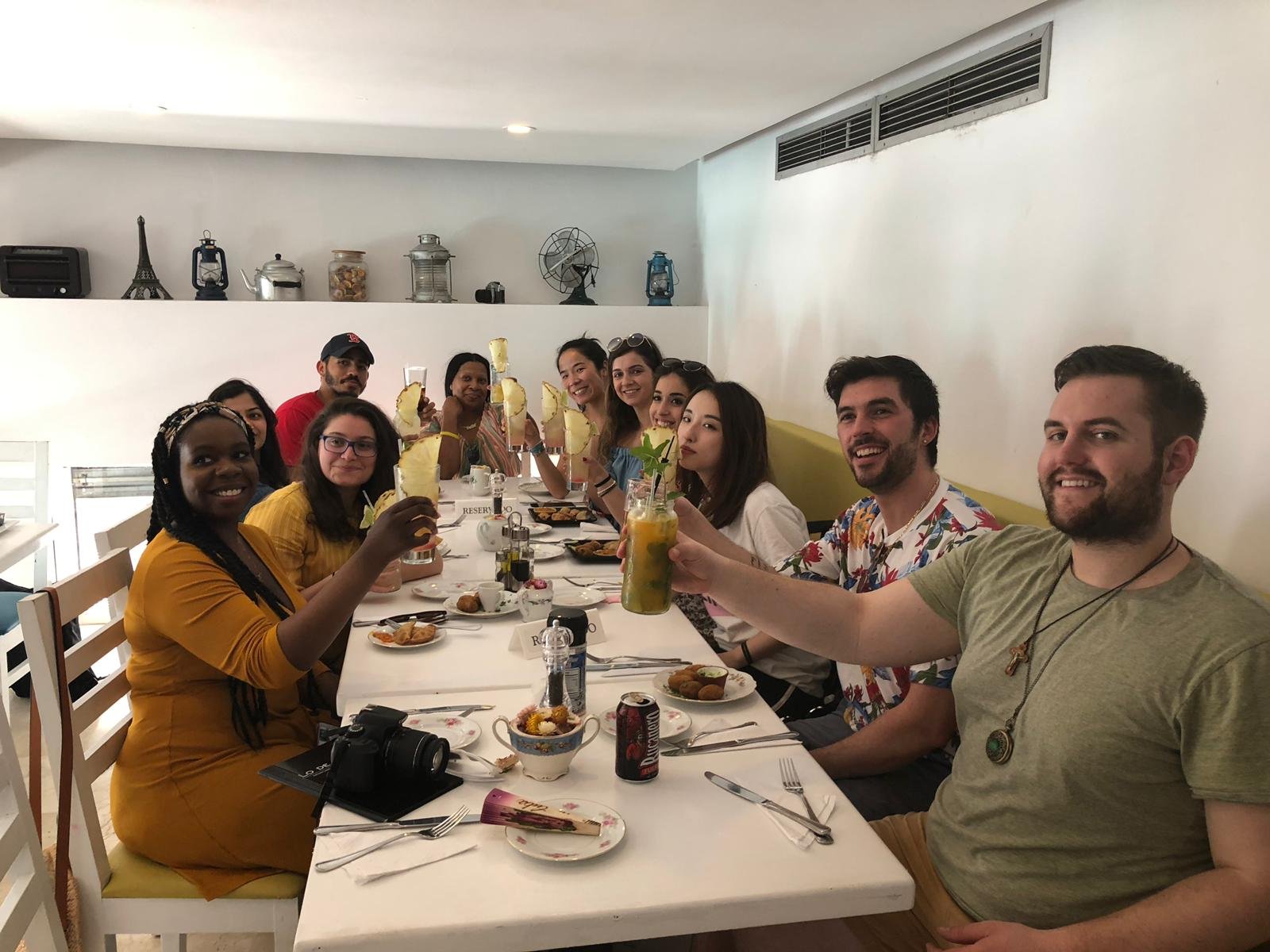PALADAR: The Story of a Privately-owned Cuban Restaurant
Siá Kará Café || la habana, Cuba
The word paladar is completely unique to Cuba, so don’t expect to encounter it in other Latin American and Spanish-speaking countries. What exactly is a paladar, you ask? The term literally means "to palate" (see palate definition) and indicates a privately-owned and operated Cuban restaurant. Private is the keyword here as all other Cuban restaurants are publicly-run and operated by the government. As you can see, the distinction between a private and public Cuban restaurant is necessary and thus, the term paladar was conceived. Let’s just say that if you’re looking for things to do in Cuba and more specifically, somewhere to eat, it’s safe to say you will certainly eat at a paladar.
The origin story of a paladar is not one that you’d imagine. In fact, it came from Cuban pop culture. It began during the Special Period of the 1990s, also known as el Período Especial when the Cuban government granted self-employed permits in an effort to encourage the opening of private businesses to help boost Cuba’s depressed economy. During this time, the government also took measures to increase international tourism to assist the struggling Cuba economy. However, one big challenge was the fact that the government infrastructure could not handle the influx of tourists. After 30 years of absolute nationalization of the economy, the Cuban government realized it had to make some changes. (Learn more about Cuba’s latest economic reforms.)
La Esperanza opened as a paladar in 1995, at the height of the Special Period, and is still open today in Miramar, Havana, Cuba
During this time, one of the most common businesses to arise (aside from a casa particular also known as a Cuban Airbnb) were private restaurants that received the popular name of paladares in honor of the chain restaurant run by the protagonist of a popular Brazilian soap opera called Vale Todo. (In Cuba, Brazilian soap operas are broadcast on national television and are very popular.)
From 1990 to 2011, paladares had to operate under tight government restrictions controlling the quantity and type of products offered as well as the hiring of employees and number of seats allowed in the restaurant. These measures were a not-so-subtle effort to restrict the private sector that the government begrudgingly authorized in an effort to save Cuba’s economy.
Fortunately for paladar owners, the government adopted a more progressive position regarding private economic actors beginning in 2011. A reformist policy was implemented which recognized the value of private enterprises as complementary and fundamental links for the development of the national economy. Thus, the expansion of private investment was authorized and encouraged. Due to these measures, an influx of Cubans living abroad returned to the island to invest in the new concept of a privately-owned Cuban restaurant.
The reopening of diplomatic relations between the United States and Cuba in 2011 also greatly influenced the boom in paladares. The explosion of North American tourism on the island benefited not only the tourist-focused paladares but also those catering to the general public as the purchasing power of many Cubans rose rapidly with the changes in U.S. - Cuba relations.
paladares today
Students from the Carlson School of Management (University of Minnesota) with AlaMesa co-founder Ariel Causa at PaZillo Bar in Vedado, Havana (March 2020)
Like the rest of the world, COVID-19 halted international tourism in Cuba and in turn, greatly impacted paladares. Thanks to local patrons, many paldares have survived the decrease in clientele. That’s not to say that they haven’t been forced to find innovative solutions to promote their business and reach new customers given the current circumstances. The use of delivery services and e-commerce sites/apps are relatively new in Cuba and have also been pivotal in keeping many paladares afloat. Mandao, the most successful home delivery venture in Cuba today, is one example.
Aside from the setbacks of the pandemic, the typical paladar has changed since its conception in the 90s. Cuban and international patrons are increasingly demanding, the governmental authorization standards for paladares are more rigorous, and the increase in paladares has created greater competition. All of these factors have led to new technology such as AlaMesa, a food-focused app/website that serves as a search engine and cataloger of paladares in Cuba.
Overall, it’s no secret that the creation of the paladar has improved the quality of life for many Cubans and those fortunate enough to visit this amazing country. Paladares have diversified the national cuisine and typical offerings with a variety of foods influenced by all reaches of the world. At EEAbroad, one paladar that we love to take our travelers to is Hecho en Casa which focuses on creating a truly intimate experience sharing their love of fresh, homemade, traditional Cuban food. We encourage you to visit Cuba with us to experience eating at the vast array of delicious paladares.







